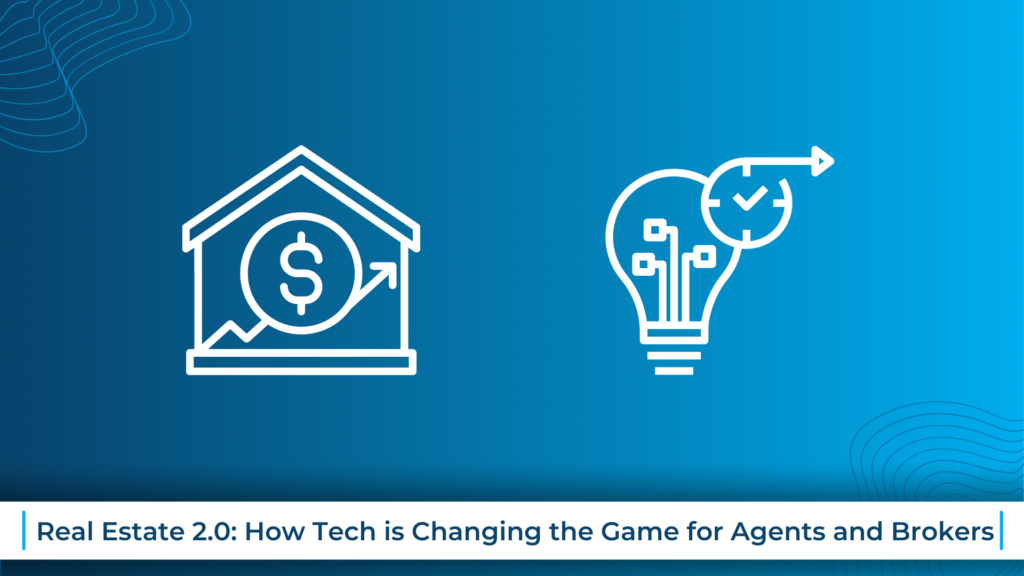
Real Estate 2.0: How Tech is Changing the Game for Agents and Brokers
The real estate industry has always been known for its traditional ways of doing business, but with the emergence of new technology, the industry is rapidly evolving. AI, VR, Blockchain – the list goes on. As the tech improves, it is quickly transforming how business is conducted in the real estate industry.
As we look forward into 2023 and beyond, the real estate industry is poised for significant disruption through the continued development of new tech. Here are 5 key trends to look out for.
How Virtual Reality Tours are Transforming the Real Estate Industry
In recent years, we have seen the implementation of VR in the real estate world, transforming the way in which tours are conducted. The technology would enable potential buyers to take a 360-degree virtual tour without actually having to be at the property. This tech allows buyers to get a feel for space and dimensions of the property without needed to travel to it, saving time and money on both ends.
Agents could also use the virtual property as a way to simulate changes, showing what renovations could look like, once again giving a better idea of what buyers are purchasing.
Machine Learning algorithms
Another significant development in tech has been the use of machine learning algorithms being integrated into the process of research and data analysis. These algorithms can analyse large amounts of data to provide insights into market trends, property values and buyer behaviour.
Real estate agents can use this information to make better, more informed decisions, such as pricing a property correctly, predicting market demand and targeting the right buyers.
Generative AI
The application of Generative AI is becoming increasingly prevalent in the real estate industry. Its usage has led to the creation of more precise and intricate representation of properties, identification and categorization of distinct building and spatial types, and the production of property descriptions based on market analysis and buyer input.
This would cut down on time creating property listings however there are concerns over potential bias and accuracy. AI only as good as the text it is trained on, and if that text is inaccurate it will affect answers given by the AI.
- Try it yourself with – Chat GPT
Blockchain
Blockchain technology is another tech advancement that is slowly making its way into the real estate industry. Blockchain is a decentralized ledger system that enables secure and transparent transactions. In the real estate industry, blockchain can be used to streamline the buying and selling process, reduce fraud, and increase transparency.
Decarbonisation
Decarbonizing the real estate industry is critical for multiple reasons. Firstly, the sector is accountable for a considerable amount of carbon emissions, primarily attributed to heating, cooling, electricity, and appliance usage.
Secondly, decarbonization can result in reduced energy and maintenance expenses, along with enhanced indoor air quality for building occupants.
Lastly, it can boost the market value and competitiveness of buildings by meeting the rising demand for energy-efficient and sustainable properties from consumers and tenants.
So as technology continued to improve at a rate we’ve never seen before, it is only a matter of time before there is the next revolution in the real estate industry as a result.
One of the ways in which these advancements can negatively affect this industry is with the improvement in the sophistication of cyber-attacks. With the quality of attacks getting higher, having a secure business is crucial, especially with reports that you could lose nearly half of your customers after a data breach.
Read about the different ways you can secure your business today – Security Genmar IT

Comments are closed.